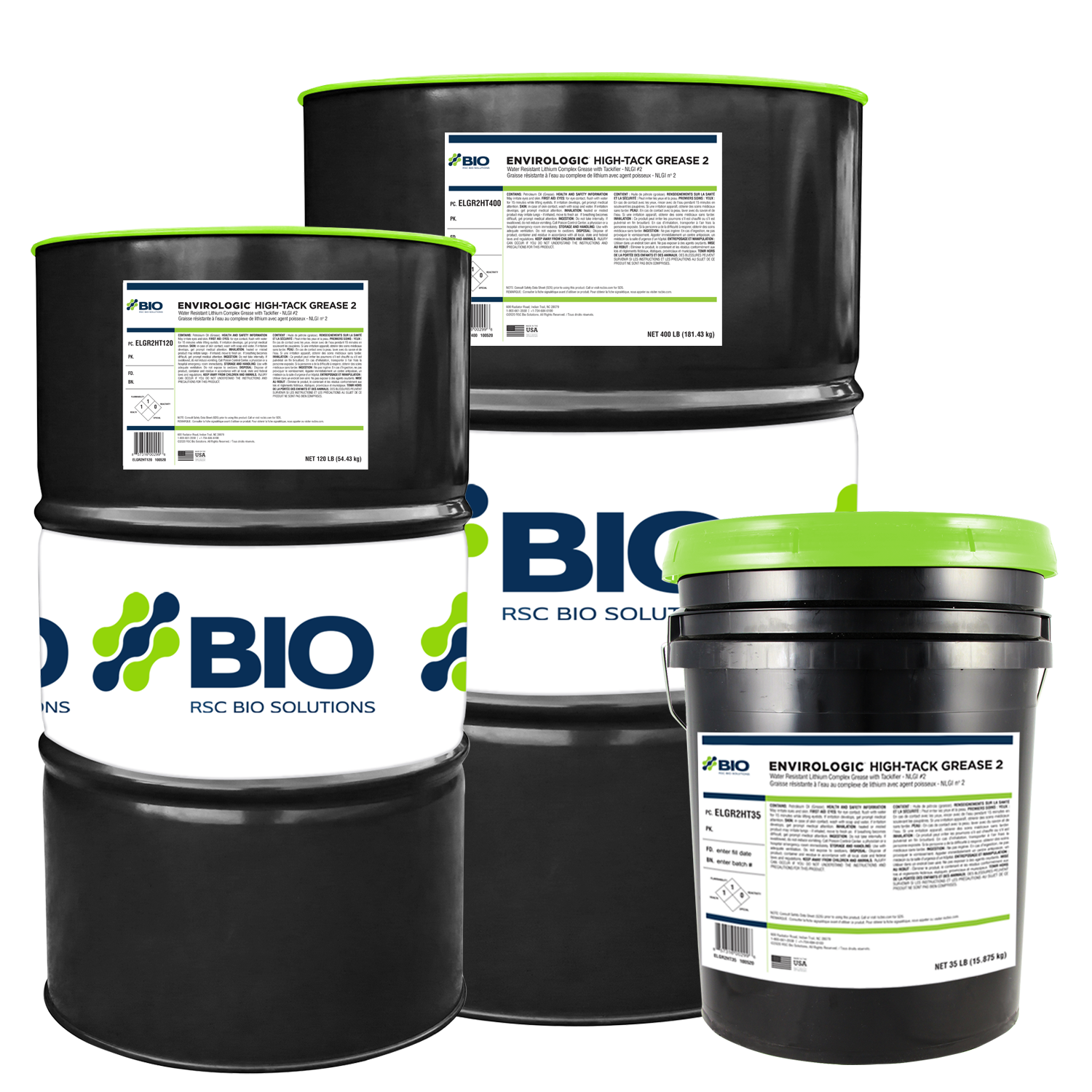EnviroLogic® High-Tack Grease 2 is an adhesive, biodegradable lubricant that can be used in a variety of applications to reduce wear and friction. This grease was specifically designed to seal out contaminants like water and debris in high speed applications. EnviroLogic® High-Tack Grease 2 is a VGP compliant grease for use in Cutter Suction Dredge and Jack Up Boat applications. This grease was designed to adhere to metal surfaces using highly effective polymers developed specifically for RSC Bio Solutions. The steel and copper corrosion inhibitors and the performance additives in EnviroLogic® High-Tack Grease 2 will provide a barrier to corrosion and wear that will extend the life of the equipment to which it is applied.
EnviroLogic® HIGH-TACK GREASE 2 IS THE RIGHT CHOICE AND HERE’S WHY
ENVIROLOGIC® HIGH-TACK GREASE 2:
- Remains viable adhering to itself in high spin applications such as cutter suction dredge applications.
- Offers a 4 ball weld of 500 kgf (ASTM D 2596)
- Extremely water resistant with a low water spray off of 5% loss – as measured by ASTM D 4049.
TYPICAL APPLICATIONS
- Jack Up Boats
- Pile Hammers
- Cutter Suction Dredges
| Product Number | ISO Grade | Product Data Sheet | Safety Data Sheet |
| Grease High-Tack | NLGI 2 | Data Sheet |
FAQS
What does biodegradability actually mean?
Biodegradability is defined as the ability of a substance to be digested or consumed by naturally occurring microorganisms present in water, air and soil systems. Complete biodegradability is the conversion of a substance to carbon dioxide and water.
What differentiates Inherently Biodegradable from Readily Biodegradable?
Inherently biodegradable is defined as the characteristic of a product to be consumed by naturally occurring organisms in nature over an indefinite period of time (> 20% but < 60% as measured by OECD 301B testing). This characteristic is defined by the original composition of the product). Readily biodegradable is defined as the ability of a product to biodegrade quickly and completely (≥ 60% by OECD 301B).


